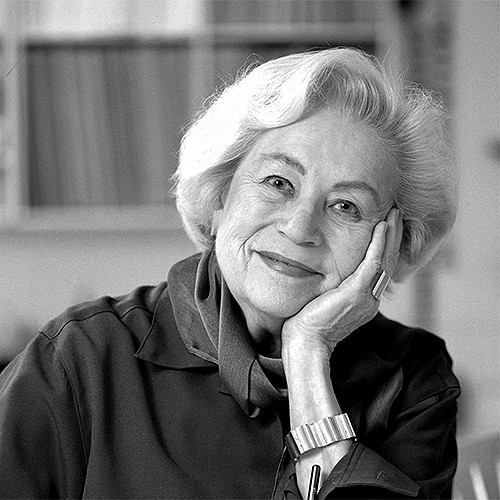The Trinidad chair was first presented in 1993 and heralded as a breakthrough due to its utilisation of CNC technology. Both lightweight and stackable, the cutout fretwork on the curved shell back not only allows for ventilation and optimum comfort for the user but also gently plays with sunlight and shadow, casting beautiful kaleidoscopic patterns.
From conservatories to concert halls, the Trinidad chair would look at home in many settings, a post-modern milestone in the history of plywood chairs.

With her postmodernist attitude and rebellion against tradition, it is easy to understand how Nanna Ditzel (1923-2005) became a leading figure in the renewal of Danish design in the 1990's, well after her 70th birthday.
Born in Copenhagen, Denmark, Nanna Ditzel originally trained as a cabinet maker before studying at the School of Arts and Crafts and the Royal Academy of Fine Arts in Copenhagen. Inspired by the challenges of new materials and techniques, Nanna was a pioneer in the fields of fiberglass, wickerwork and foam rubber, and in various disciplines such as cabinet making, jewellery, tableware, and textiles. Nanna Ditzel designed the world’s most renowned furniture textile "Hallingdal" for Kvadrat.
Nanna often began with a subjective starting point, which was contrary to specific problems to be solved. She had the incredible gift of transforming her artistic dreams into very functional and purposeful designs.















































